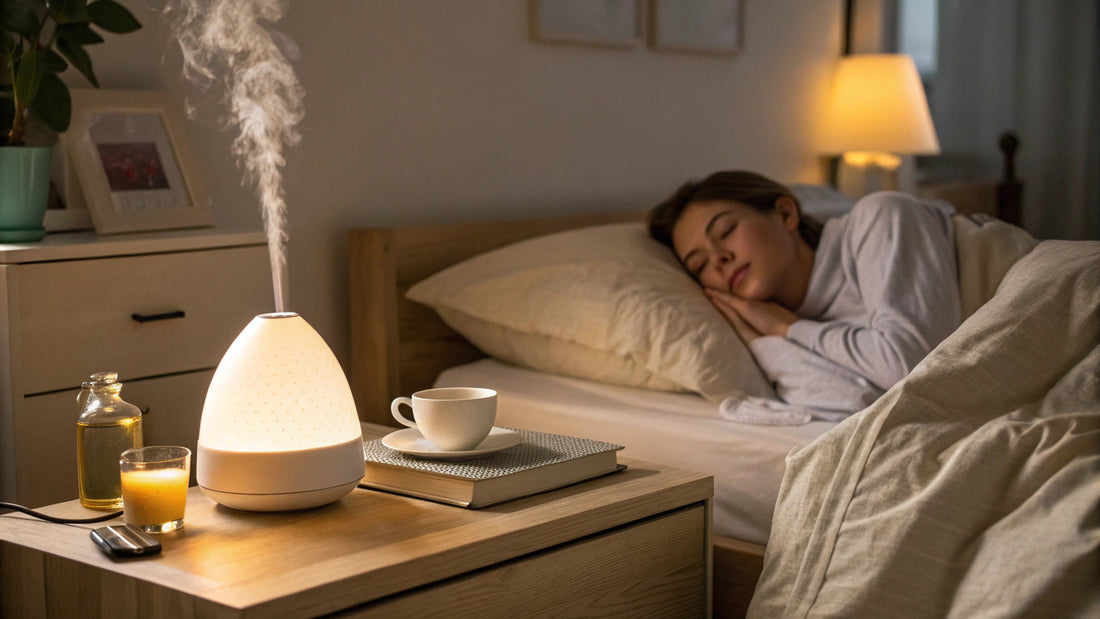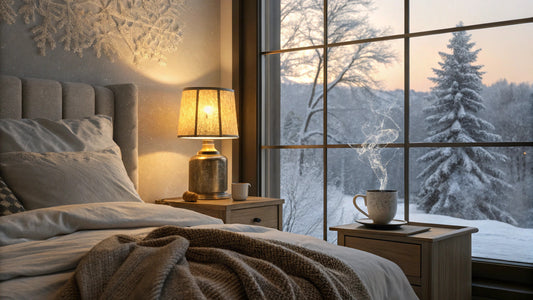
7 Science-Backed Ways to Fall Asleep Faster
Falling asleep should be simple — but for many of us, it feels like a nightly struggle. Racing thoughts, stress, and modern habits like late-night screen time can delay sleep and leave us tossing and turning.
The good news? Sleep science offers practical, proven strategies that make drifting off easier. Here are 7 science-backed ways to fall asleep faster and wake up feeling refreshed.
Quick Answer
The fastest ways to fall asleep involve calming your nervous system and sending your brain “sleep signals.” This includes dimming lights, powering down screens, practicing mindful breathing, keeping a consistent bedtime, and using sensory cues like weighted blankets or calming scents.
1. Dim the Lights 1–2 Hours Before Bed
Light is the most powerful cue for your circadian rhythm. Bright or blue-toned light tells your brain it’s daytime, delaying melatonin (the sleep hormone).
How to do it:
-
Switch to warm, low lighting in the evening.
-
Use lamps or candles instead of overhead lights.
-
Avoid bright bathroom or kitchen lights close to bedtime.
👉 Why it works: Dimming lights helps your brain enter “night mode,” making it easier to feel naturally sleepy.
2. Power Down Screens Early
It’s not just blue light from phones and TVs — the content you consume keeps your brain stimulated and alert.
How to do it:
-
Set a “tech curfew”: no screens at least 1 hour before bed.
-
If you must use devices, enable night mode or blue-light–blocking glasses.
👉 Why it works: Less stimulation allows melatonin to rise, and your brain can wind down properly.
3. Try the 4-7-8 Breathing Technique
This simple breathing pattern can calm your nervous system and lower your heart rate.
How to do it:
-
Inhale for 4 seconds.
-
Hold for 7 seconds.
-
Exhale slowly for 8 seconds.
-
Repeat 4 times.
👉 Why it works: It activates your parasympathetic “rest-and-digest” system, easing stress and preparing your body for sleep.
4. Keep a Consistent Sleep Schedule
Your body thrives on rhythm. Going to bed and waking up at the same time every day helps regulate your internal clock.
How to do it:
-
Aim for the same bedtime and wake-up, even on weekends.
-
Get sunlight exposure during the day to reinforce your rhythm.
👉 Why it works: Consistency trains your body to feel sleepy at the right time, making falling asleep faster over time.
5. Cool Down Your Bedroom
Temperature plays a huge role in sleep quality. A cooler environment signals to your body it’s time to rest.
How to do it:
-
Keep your room around 18–20°C (65–68°F).
-
Use breathable bedding.
-
Take a warm shower before bed — the post-shower cool-down helps trigger sleepiness.
👉 Why it works: A cooler core body temperature supports deep sleep cycles.
6. Use Calming Sensory Cues
Your brain associates certain sensations with safety and relaxation.
How to do it:
-
Snuggle under a weighted blanket for gentle, even pressure.
-
Sip a caffeine-free herbal tea, like chamomile.
-
Add a calming scent (lavender, cedarwood) with a diffuser or pillow spray.
👉 Why it works: Sensory rituals help your nervous system shift from stress to calm.
7. Don’t Force Sleep — Reset Instead
If you’re not asleep within ~20 minutes, lying in bed frustrated makes things worse.
How to do it:
-
Get up and do something calming: read a book, stretch, or listen to soft music.
-
Return to bed once you feel sleepy.
👉 Why it works: This breaks the negative association between bed and stress.
Final Thoughts
Falling asleep faster isn’t about tricks — it’s about sending your brain and body the right signals. By combining light control, breathing, consistency, temperature, sensory rituals, and patience, you can reset your sleep habits and reclaim your nights.
Better sleep isn’t instant, but with practice, these science-backed strategies make it easier to drift off naturally.
FAQ
Q: What is the fastest way to fall asleep naturally?
Practice 4-7-8 breathing, dim lights, and avoid screens at least an hour before bed.
Q: How long should it take to fall asleep?
Most people fall asleep within 10–20 minutes when well-rested.
Q: Do weighted blankets really help with sleep?
Yes — gentle pressure can reduce stress and calm the nervous system, helping you relax faster.
✅ For more practical sleep advice, you can check the NHS blog post about How to fall asleep faster and sleep better or Sleep Foundation's post How to Fall Asleep Fast.



